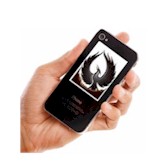|
|


IVR Solutions
This section of our technical library presents information and documentation relating to IVR Solutions
and custom IVR software and products.
Business phone systems and toll free answering systems (generally 800 numbers and their equivalent) are very popular for service and sales organizations, allowing customers and prospects to call your organization anywhere in the country.
The PACER and WIZARD IVR System is just one of many DSC call center phone system features..
What is IVR Software?. An Interactive Voice Response (IVR) processes inbound phone calls, plays recorded messages including information extracted from databases and the internet, and potentially routes calls to either inhouse service agents or transfers the caller to an outside extension.
Contact DSC today. to learn more about our IVR services and IVR application development software.
IVR / VRU User Interface Design Best Practices
Page 2
By Stephen Marshall, Vanguard Communications
Best Practice #3: Keep the user interface consistent.
- Phrase each activity in the same manner.
- State the action before the action key.
- Use keypad functions in a consistent fashion.
- Handle invalid entries and timeouts the same way at each menu level.
- Voice quality, including pitch and volume, should be consistent
throughout the application.
- Use a single voice throughout the application: multiple voices tend
to be jarring to callers.
- Don't look at your voice response system in a vacuum. IVR
applications should complement Internet applications, customer materials, screens used by
customer service reps, etc as part of the whole customer contact experience. This means
using consistent phrasing, terminology, and content availability.
Best Practice #4: Provide a number of ways into and out
of the system.
- Always provide a way for callers to get to a live answer point, while
at the same time encouraging them to use the application.
- Train customer support staff on the system - and keep them informed
of changes and updates.
Best practice #5: Talk to callers - don't write to them.
- We speak very differently than we write. Scripts that sound like
writing are stilted and frequently discourage callers.
- Always read your script aloud before it is recorded and test it with
a mix of people.
- Use a natural, high quality, intelligible voice.
- Time prompts and options to reflect normal conversation.
- Test concatenated prompts to make sure they sound natural.
- Avoid using acronyms or technical jargon that your average caller may
not understand.
- Limit concatenation wherever possible by recording phrases, rather
than stringing together single words.
Best Practice #6: Use technology to personalize your callers'
experience.
- Identify callers through account numbers or other methods in order to
offer options that are tailored to the caller, and/or the caller's value to your
organization.
- Provide dynamic menus, wherever possible, that are tailored to the
services available to the caller.
- Don't offer callers options that are not available to them under
their specific service level.
- If callers transfer out, provide the answering point with information
about the caller and where the caller was in the system.
Why do callers choose voice response?
Customers will use IVR if:
- They are educated about the system.
Use bill stuffers, point-of-sale materials or special promotions to advertise and
instruct callers on how to use the system.
- Their expectations are set in advance.
They are prepared to be answered by an automated service rather than a "live"
operator.
- There is real or perceived value in using IVR.
It's quicker - no hold time. 24-hour access. Customers get reduced rates or rebates.
- Customers do not get better service if they choose not to
use the system.
Whether you are planning to implement voice response or you already
have a system in place, take a moment to consider what sort of experience you'd like your
customers to have. If reality falls some way short of the ideal, it might be time to
consider how improvements in the user interface will help you deliver better service and
increase system utilization. The alternative doesn't bear thinking about!
Page
[1]
[2]
Contact DSC today. to learn more about our IVR services and IVR application development software.
|



